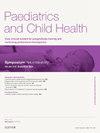Post COVID-19 paediatric inflammatory syndrome (PIMS-TS/MIS-C): what have we learned?
Q3 Medicine
引用次数: 0
Abstract
During the early phase of the COVID-19 pandemic, PIMS-TS emerged as a new hyper-inflammatory disorder affecting children. These children were often unstable requiring admission to critical care. Children with PIMS-TS displayed symptoms mimicking other inflammatory processes but it was quickly apparent this was a novel condition requiring its own treatment regime. Through international co-operative resource sharing, agreement grew over several treatment options including biological agents, IVIG and steroids leading to consensus guidance based on anecdotal and limited observed data. As our understanding of COVID-19 grew with each wave of the pandemic, so has our understanding of PIMS-TS. Several large trials, including the RECOVERY and BATS trials, are now able to provide an evidence base for the treatment of this condition, and challenge some of the management practices that were widely utilized. IV Immunoglobulin, for example, has been shown not to change outcomes and would therefore no longer be recommended for treatment, whereas methylprednisolone did show some improvements over usual supportive care. Epidemiology data shows PIMS-TS to have been a temporally limited condition, reducing in prevalence with each variant of COVID-19. Looking at overall outcome data, this was thankfully a condition with overall very low mortality and limited long term morbidity.
COVID-19后儿童炎症综合征(PIMS-TS/MIS-C):我们学到了什么?
在COVID-19大流行的早期阶段,PIMS-TS成为一种影响儿童的新型高炎症性疾病。这些儿童通常情况不稳定,需要接受重症监护。患有PIMS-TS的儿童表现出类似其他炎症过程的症状,但很快就发现这是一种新的疾病,需要自己的治疗方案。通过国际合作资源共享,对包括生物制剂、IVIG和类固醇在内的几种治疗方案达成了共识,导致基于轶事和有限观察数据的共识指导。随着每一波疫情的爆发,我们对COVID-19的理解也在不断加深,对PIMS-TS的理解也在不断加深。包括RECOVERY和BATS试验在内的几项大型试验现在能够为这种疾病的治疗提供证据基础,并对一些广泛使用的管理实践提出挑战。例如,静脉注射免疫球蛋白已被证明不会改变结果,因此不再推荐用于治疗,而甲基强的松龙确实比通常的支持性治疗有一些改善。流行病学数据显示,PIMS-TS是一种暂时受限的疾病,每种COVID-19变体的患病率都在下降。从总体结果数据来看,值得庆幸的是,这是一种总体死亡率非常低、长期发病率有限的疾病。
本文章由计算机程序翻译,如有差异,请以英文原文为准。
求助全文
约1分钟内获得全文
求助全文
来源期刊

Paediatrics and Child Health (United Kingdom)
Medicine-Pediatrics, Perinatology and Child Health
CiteScore
1.20
自引率
0.00%
发文量
70
 求助内容:
求助内容: 应助结果提醒方式:
应助结果提醒方式:


